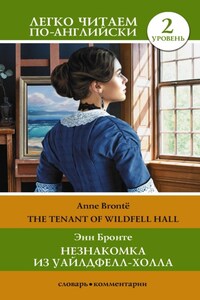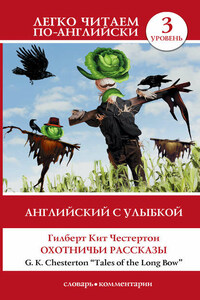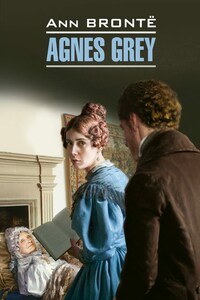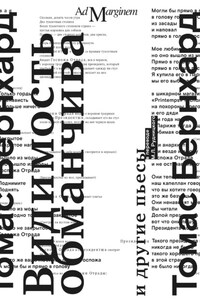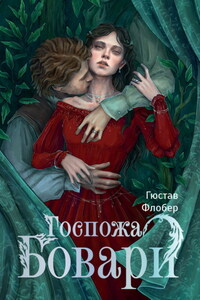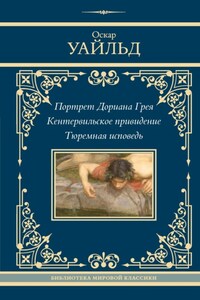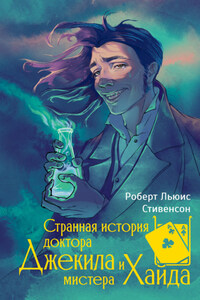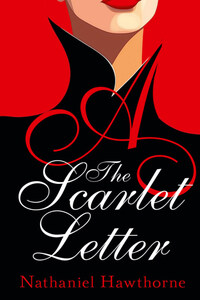You must go back with me to the autumn of 1827. My father, as you know, was a farmer. I, by his desire, not very willingly, was burying my talent in the earth. My mother persuaded me that I was capable of great achievements; but my father assured me it was all rubbish, and exhorted me to follow his steps.
“Well! An honest and industrious farmer is one of the most useful members of society,” I consoled myself one cold, damp, cloudy evening. I was young then, remember – only four-and-twenty.
I ascended to my room. I met a smart, pretty girl of nineteen, with a tidy, dumpy figure, a round face, bright cheeks, glossy curls, and little merry brown eyes. This was my sister Rose. My mother was sitting in her arm-chair at the fireside and knitting, according to her usual custom, when she had nothing else to do. The servant brought in the tea-tray.
“Well! Here they both are![1]” cried my mother. “Now shut the door, and come to the fire. I'm sure you must be starved. Tell me what you were doing all day.”
“I'll tell you what I was doing,” said Rose. “You know that somebody was going to take Wildfell
Hall – and – what do you think? It was inhabited a week! – and we never knew!”
“Impossible!” cried my mother.
“Preposterous!” shrieked my brother Fergus.
“It has indeed! – and by a single lady!”
“Good gracious, my dear! The place is in ruins!”
“But there she lives, all alone – except an old woman for a servant!”
“Oh, dear! That spoils it – I hoped she was a witch,” observed Fergus.
“Nonsense,
Fergus! But isn't it strange, mamma?”
“Strange! I can hardly believe it.”
“But you may believe it; for Jane Wilson saw her. She went with her mother. So the tenant is called Mrs. Graham, and she is in mourning[2]. She is quite young, they say, not above five or six and twenty, but very reserved! They tried to find out who she was and where she came from, and, all about her. But neither Mrs. Wilson, nor Miss Wilson managed to elicit a single satisfactory answer, or even a casual remark. Eliza Millward says her father intends to call upon her[3] soon, to offer some pastoral advice, which he fears she needs. And we must see here, too, some time, mamma.”
“Of course, my dear. How lonely she must feel!”
The next day my mother and Rose visited the fair recluse. Mrs. Graham betrayed a lamentable ignorance on certain points, they said.
“On what points, mother?” asked I.
“On household matters and cookery. I gave her some useful pieces of information, however, and several excellent receipts. But she begged not to trouble her, as she lived in such a plain, quiet way, that she was sure she did not need them. 'No matter, my dear,' said I; 'it is what every respectable female ought to know. Though you are alone now, you will not be always so. You were married, and probably will be again.' 'You are mistaken there, ma'am,' said she, almost haughtily; 'I am certain I never shall.' But I told her I knew better.”
“Some romantic young widow, I suppose,” said I. “She came there to end her days in solitude – but it won't last long.”
“No, I think not,” observed Rose; “and she's excessively pretty – handsome rather – you must see her, Gilbert. Though you can hardly pretend to discover a resemblance between her and Eliza Millward.”
The next day was Saturday; and, on Sunday, everybody wondered whether or not the fair unknown profited by the vicar's remonstrance. Will she come to church?
Yes, she came there. And there I beheld a tall, lady-like figure in black. Her face was towards me, and there was something in it which invited me to look again. Her hair was black, she had long glossy. Her complexion was clear and pale. Her eyes were concealed by their lids and long black lashes. The forehead was lofty and intellectual.
She raised her eyes, and they met mine. I did not withdrew my gaze, and she turned again to her prayer-book, but with a momentary, indefinable expression of quiet scorn.
Now, Halford, before I close this letter, I'll tell you who Eliza Millward was. She was the vicar's younger daughter. I liked her; and she knew. But my mother did not bear the thoughts of my marrying that girl, who had not even twenty pounds, as my mother said. Eliza's figure was plump, her face small and round. Her eyes were long and narrow in shape. Her voice was gentle and childish.
Her sister, Mary, was several years older and several inches taller. Her father, all dogs, cats, children, and poor people loved her very much.
The Reverend Michael Millward himself was a tall, ponderous elderly gentleman, who placed a shovel hat[4] above his large, square, massive-featured face. He carried a stout walking-stick in his hand. He was a man of fixed principles, strong prejudices, and regular habits.
He cared for his bodily health. He took a walk before breakfast, was vastly particular about warm and dry clothing. He was gifted with good lungs and a powerful voice, – and was, generally, extremely particular about what he ate and drank.
